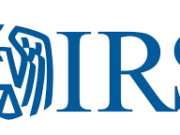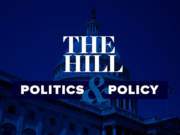CCP Chairman Brad Smith had a piece this weekend published in Real Clear Policy, part of the Real Clear Politics group of sites, titled, “Citizens United: It’s Not About Democrats.” In it, Smith takes on efforts in the State of New York (something we’ve addressed extensively, both in blog posts and in reports detailing the corruption in a state that is already among the most regulated in terms of campaign finance law) — led by New York State Comptroller Thomas P. DiNapoli and New York City Public Advocate Bill de Blasio — as being less about reform and more a concern that “increased mandatory disclosure [could lead to] simple invasion of privacy to concerns that political donation information could lead to enemies’ lists and boycotts of businesses that give to political campaigns.”
In support of this attempt to use the federal bureaucracy to bypass the legislative process, they point to the support a similar rule has received in comments to the agency from the broad public. But that support has been almost entirely premised on hostility toward the Citizens United ruling and corporate political speech generally, rather than concerns for shareholder well-being. Of the comments the agency has received, most have come in form letters ginned up by de Blasio himself, along with unions, that rail against Citizens United and corporations. And much of the hostility toward Citizens United is founded on an incorrect understanding of Citizens United and partisan ideology – especially the belief that Citizens United favors conservative ideas – rather than a proper understanding of the First Amendment. In short, de Blasio and DiNapoli are using the Citizens United decision to advance a partisan agenda of state tracking of political activity.
Federal law already requires political action committees (including Super PACs) to disclose all donations, individual or corporate; corporate PACs disclose all their activity; and corporations that make political expenditures themselves disclose that fact. But DiNapoli and de Blasio want more. They want the SEC to force disclosure of contributions to, and membership rosters of, tax-exempt social welfare groups and trade associations that make politically related expenditures. DiNapoli and de Blasio don’t like what these associations have to say, so they have decided to try to use the SEC – an agency that has no business, expertise, or mandate to decide anything related to election law – to hinder corporate commentary on politics.
Smith recently testified before the the Senate Judiciary Committee’s Subcommittee on Crime and Terrorism, as part of a hearing on “Current Issues in Campaign Finance Law Enforcement” in which he made the case that the FEC is the appropriate agency to hear campaign finance law complaints, and attempts to move that enforcement to agencies like the SEC are attempts to seek enforcement from those who are not experts on the intricacies of campaign finance law.
With President Obama’s non-profit Organizing for Action expressing an interest in lending to reform efforts in the state, Smith’s piece is a must-read to provide context to an issue that the media so often gets wrong.














